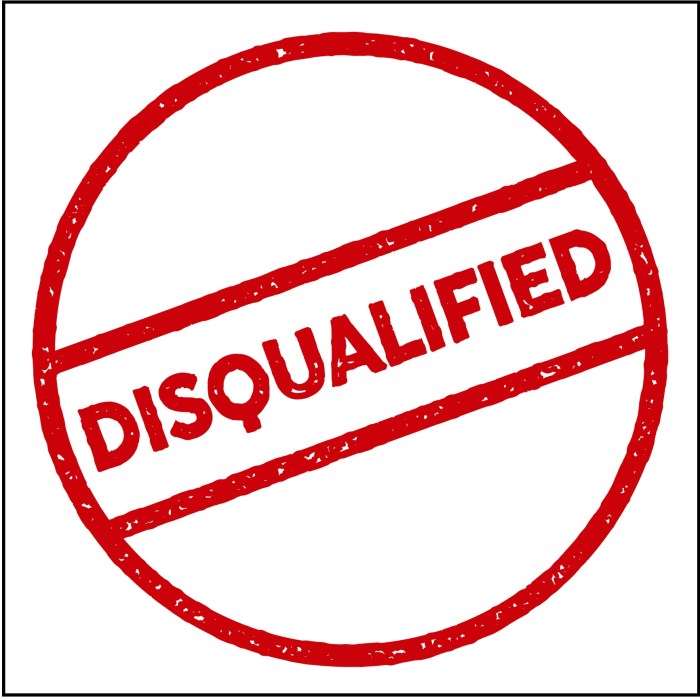An rr who becomes subject to a statutory disqualification faces significant consequences that can impact their ability to practice and their reputation. This article provides a comprehensive overview of statutory disqualification for RRs, exploring its grounds, consequences, defenses, and mitigation options.
Statutory disqualification arises from legal provisions that prohibit individuals from engaging in certain activities, including serving as RRs, due to specific misconduct or violations.
Statutory Disqualifications

Statutory disqualification is a legal mechanism that prevents individuals from holding certain positions or engaging in specific activities due to their past actions or conduct. For registered representatives (RRs), statutory disqualification can have significant implications, potentially barring them from practicing in the securities industry.
Grounds for statutory disqualification for RRs include:
- Felony convictions
- Certain misdemeanors involving dishonesty or breach of trust
- Violations of securities laws or regulations
- Disciplinary actions by regulatory authorities
The process for determining statutory disqualification typically involves a review of the RR’s background and a determination by a regulatory authority, such as the Financial Industry Regulatory Authority (FINRA), that the RR meets the criteria for disqualification.
Consequences of Statutory Disqualification

Statutory disqualification can have severe consequences for RRs. It can result in:
- Loss of RR license and inability to practice in the securities industry
- Inability to obtain or maintain employment in the financial services industry
- Damage to reputation and loss of trust among clients and colleagues
- Financial losses due to lost income and potential career advancement opportunities
Defenses Against Statutory Disqualification

RRs facing statutory disqualification may have potential defenses available to them. These include:
- Challenging the accuracy or completeness of the allegations against them
- Demonstrating that the disqualification is not in the public interest
- Seeking a waiver or exemption from the disqualification
The process for challenging a statutory disqualification typically involves filing a petition with the relevant regulatory authority and presenting evidence to support the defense.
Mitigation of Statutory Disqualification

RRs who have been subject to statutory disqualification may explore options for mitigating the consequences. These include:
- Participating in rehabilitation or remediation programs to demonstrate their fitness to practice
- Applying for a waiver or exemption from the disqualification
- Pursuing alternative career paths outside of the securities industry
The process for regaining RR status after statutory disqualification typically involves a thorough review of the RR’s background, conduct, and rehabilitation efforts.
FAQ Corner: An Rr Who Becomes Subject To A Statutory Disqualification
What are the most common grounds for statutory disqualification for RRs?
Felony convictions, fraud, and violations of securities laws are common grounds for statutory disqualification.
What are the consequences of statutory disqualification for RRs?
RRs who are subject to statutory disqualification may lose their licenses, face civil penalties, and damage their reputations.
What defenses can RRs raise against statutory disqualification?
RRs may challenge statutory disqualification by proving they did not commit the alleged misconduct or that there are mitigating circumstances.
What mitigation strategies can RRs use to reduce the impact of statutory disqualification?
RRs may participate in rehabilitation or remediation programs to demonstrate their fitness to practice again.